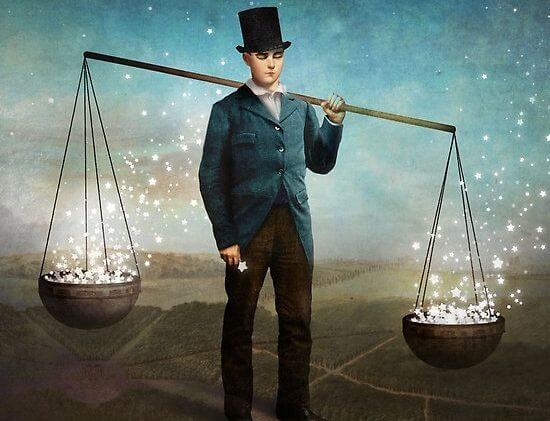If Destiny Exists, Responsibility Doesn't

You’ve probably, at some time or another, been tempted to attribute some of your achievements and failures to “fate”. In fact, there’s nothing so simple as blaming destiny for what happens to you or stops happening to you. You tend to see it as something of a magic formula, which explains and justifies everything that happens in life.
“We have the destiny that we deserve”
-Albert Einstein-
You might find yourself saying things like “It was written in my destiny that I’d meet you again” or “Fate stepped in and put a stop to that”. It seems that thinking that everything is planned in advance is something that comes to mind when you encounter coincidences or sometimes lucky situations, which determine important aspects of your life.
The problem is, that if you accepted the idea that there’s a fixed destiny, then practically everything you did would be meaningless. Because, if somethings going to happen regardless of what you do, you’d be, in effect, absolved of any responsibility yourself.
Destiny

If we’re talking literally, the word destination simply means a point of arrival. The place where you’re going or the end of a journey. However, destiny has been defined in many ways. Indeed, philosophy, mythology, religion, and esoteric beliefs have assigned various values to it:
- For philosophy, destiny has to do with the theory of causality. In other words, everything that happens has a cause that generates it.
- For Greek and Roman mythology, destiny was the personification of a goddess who had the power to determine everything, even what should happen to other gods.
- For religions, it also has a divine significance. In Hinduism, it’s an effect of karma. While in the Christian and Muslim religions, it’s a will of Providence.
- For esotericism, destiny is a reality imposed by the influences of the stars. Alternatively, it might be an amalgam between the concept of karma and divine disposition.
In reality, since time immemorial, people have asked themselves questions about their own destinies: “Where am I going?”, “Where should I go?”, “Why don’t I end up where I want to be? “In fact, the question of destiny is the question of the meaning of life. Hence, it’s a constant concern that has run through our entire history as human beings.
The purpose of destiny

The concept of “destiny”, understood as predestination, wouldn’t have survived for so many centuries, if it weren’t useful. In fact, it’s remarkably useful. That’s because, through the word “destiny”, most complex situations in life can be explained and understood, at least in appearance. The concept of destination serves, among other things, the following purpose:
- It allows you to understand adversity as an unavoidable reality. This might be in the form of punishment for your bad actions, or a test that you’ll be rewarded for if you pass.
- It allows you to associate your successes with a strong component of luck. The “good” comes into your life because your star is shining.
- It allows you to place the responsibility for what happens to you in forces outside of yourself. This avoids any possible feelings of guilt or, eventually, making the effort to get where you want.
Responsibility
The worrying thing about accepting that predestination exists, or that there’s a destiny written by a higher force, is that you relinquish control over your own life. At first, it might be just a belief, but over time it becomes a lifestyle.
You hardly realize it, but you begin to see your suffering as an unapproachable reality. You just accept the idea that it’s not possible to change what happens to you. In fact, your thinking doesn’t produce any ideas of change and you feel that all the doors are closed.
The same goes for success. A real triumph doesn’t come from a lucky situation but from perseverance. However, if you believe in destiny, you’ll be more concerned with looking for the good luck factor, rather than a method with which to move forward. Just imagine, if destiny really existed, prisons wouldn’t have to exist. Because, how could someone be judged for stealing or killing, if those acts didn’t depend on them, but on something that was already written in the stars?

In reality, everyone builds their own destiny. Although there are factors that are beyond our individual control, there are always different alternatives we can adopt in the same situation. As a matter of fact, to accept that everything is written in advance is to renounce freedom and life itself.
This text is provided for informational purposes only and does not replace consultation with a professional. If in doubt, consult your specialist.








